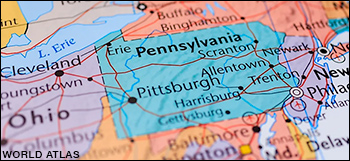By Jim Ellis
 April 21, 2022 — The first-quarter financial reports are now public and we see a stark difference between Democrats and Republicans in funding for the key May primary Senate races, particularly in Pennsylvania and Ohio. If it wasn’t for self-funding candidates in these two states, the GOP would be in trouble.
April 21, 2022 — The first-quarter financial reports are now public and we see a stark difference between Democrats and Republicans in funding for the key May primary Senate races, particularly in Pennsylvania and Ohio. If it wasn’t for self-funding candidates in these two states, the GOP would be in trouble.
In Pennsylvania, Democratic Lt. Gov. John Fetterman holds strong polling leads over his primary opponents as well as a major fundraising advantage over all contenders. According to the Federal Election Commission’s March 31 campaign finance reporting, Fetterman has raised just over $15 million for his US Senate effort.
His receipts total is well over $9 million more than his chief Democratic primary opponent, Rep. Conor Lamb (D-Pittsburgh), and his $5.7 million aggregate figure. The third competitive Democrat, state Rep. Malcolm Kenyatta (D-Philadelphia), has obtained $1.8 million. None of the three Democrats have self-funded their races to any degree.
The Pennsylvania Republicans, on the other hand, offer a stark contrast. While the top two GOP resource candidates, television doctor Mehmet Oz and ex-hedge fund CEO David McCormick, report aggregate receipts in the same realm as Fetterman, the sources are very different.
Dr. Oz posts total receipts through March 31 of $13.4 million and McCormick has $11.3 million. The difference, however, is that 82 percent of Dr. Oz’s money comes from him, and 61 percent of McCormick’s money is self-donated, mostly in the form of campaign loans.
The same pattern also appears for the third-highest funded Republican candidate, former US Ambassador Carla Sands. She reports $4.62 million in receipts, but 85 percent of that total comes from her personal funds. The fourth-place candidate, former lieutenant governor nominee Jeff Bartos, is the only one with a majority percentage of his dollars coming from contributors. He has raised $3.4 million, with 62 percent coming from individuals other than himself.
The story is the same in neighboring Ohio. There, the two top fundraising Republicans report self-funding as their major source.
Businessman Mike Gibbons leads all candidates in total receipts with $17.4 million raised. In his case, all but $1 million, or 94 percent of his aggregate total, comes from his own funds. The second-highest Republican in terms of dollars raised is state Sen. Matt Dolan (R-Chagrin Falls), who is a minority owner of the Cleveland Guardians MLB baseball club, with $11.1 million in receipts. He also has self-donated, mostly in terms of personal loans, 94 percent of his campaign treasury.
We also see the same pattern appear for the Ohio Democrats that exists in Pennsylvania. US Rep. Tim Ryan (D-Warren/Youngstown) is the consensus party candidate, way ahead of former Consumer Financial Protection Bureau official and 2020 congressional candidate Morgan Harper in terms of polling and money.

